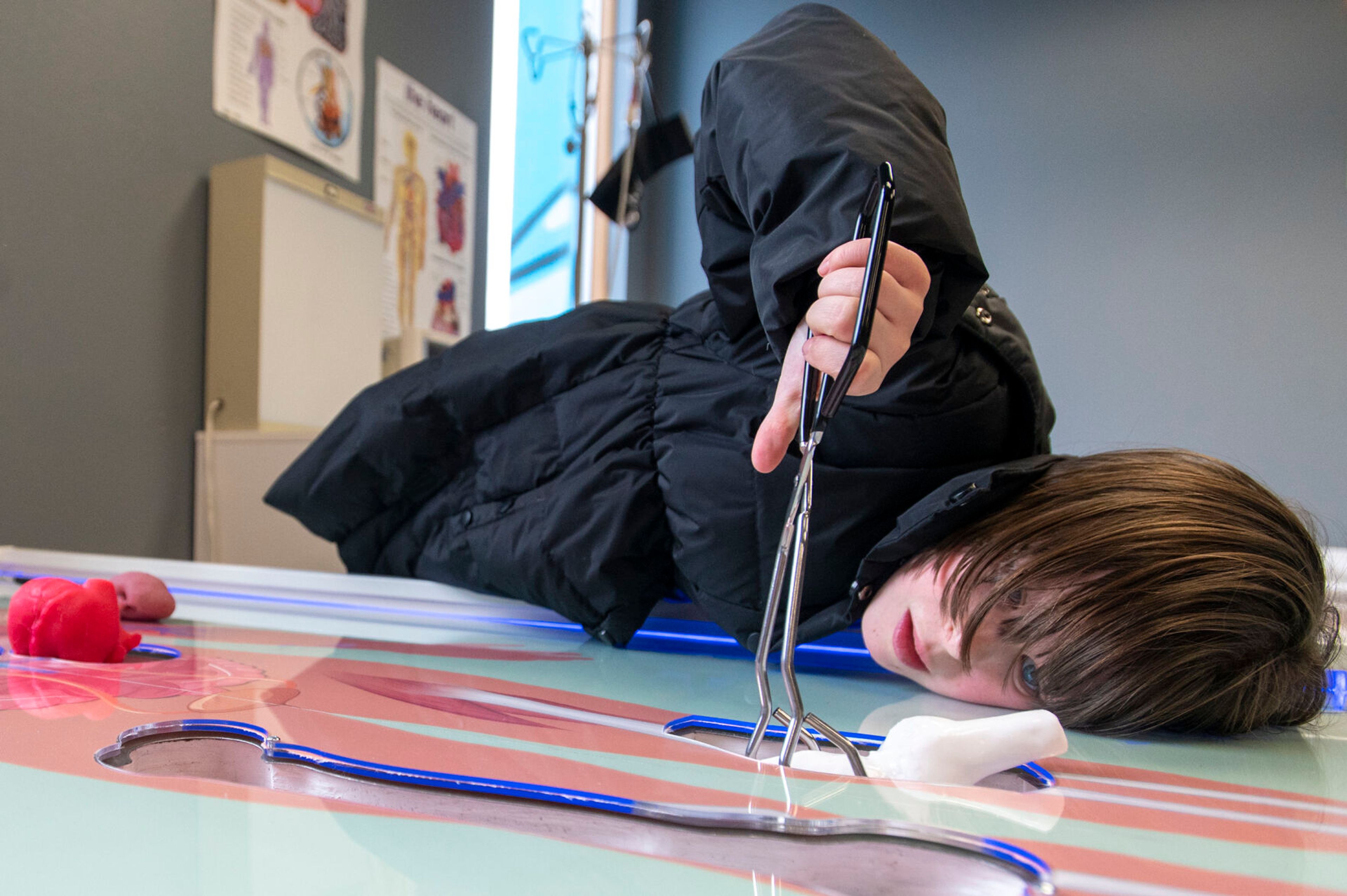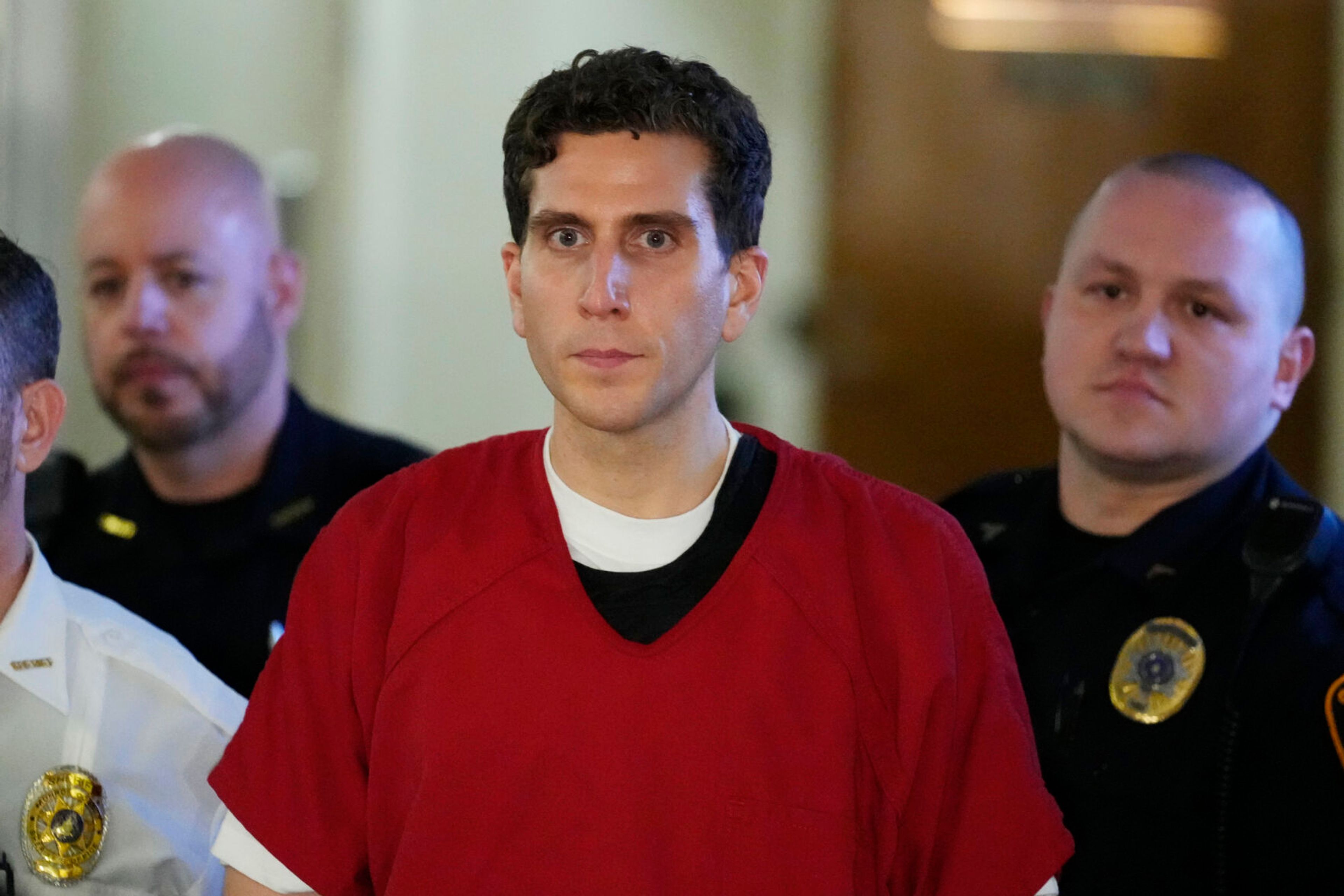UI students teach how to buy healthy foods on budget
Dietetics students provide tips and tricks by leading tours through four local grocery stores
Students with the University of Idaho’s Coordinated Program in Dietetics are leading tours in February and into early March through local grocery stores, teaching fellow students and community members tips and tricks for shopping on a budget.
College students and residents of rural areas are among the most at risk populations for food insecurity nationwide, and the problem is often as much about knowing how to shop as it is about access, said Emily Tuschhoff, director of Health Promotion at UI. She said ideally, these tours will equip participants with the skills to navigate a grocery store and purchase healthy food without breaking the bank.
“We hear quite a bit — and it’s sometimes true — that nutritious food is often the more expensive option and people often default to the the less nutritious options,” Tuschhoff said. “A lot of times that’s because maybe they aren’t sure how to navigate kind of the tricks of the stores — stores try to be helpful but are also needing to make money.”
Tours are offered most Mondays, Wednesdays and Thursdays at one of four locations in Moscow, including Rosauers, Safeway, Winco and even the Moscow Food Co-op. Tuschhoff said participants will meet the student or students leading the tour at the entrance of the grocery store in question before being led through each department.
Tips include comparing bulk aisle items with packaged products in terms of cost per ounce, looking past more expensive “eye-catching” brands that may be placed in spots that are more visible to shoppers and knowing when to shop fresh and when to shop frozen. She said contrary to popular belief, frozen fruits and vegetables are usually just as nutritious as their fresh counterparts because they are usually frozen while they’re still in season. Frozen fruits and veggies are also substantially cheaper.
Emily Maus, who led a tour of Winco on Monday, said she tried to emphasize the importance of paying attention to the ingredients labels and avoiding too many additives. Part of the goal of these tours, Maus said, is to get people thinking just what kinds of nutrients they’re taking in — especially for young college students adjusting to their newfound independence.
“College students — when they’re at home right before this, in high school — their parents are cooking for them so they don’t really know what they’re eating,” Maus said. “Once they’re on their own, they have to learn how to cook, they need to learn how to shop (and) they need to be more mindful of what they’re putting into their bodies because they probably weren’t really aware before.”
Instructor and Registered Dietitian Nutritionist Jack Brooks said in addition to helping people identify nutritious food that can fit within a tight budget, these tours also help to promote public health. He said eating nutritious food lays the groundwork for good health in general. The sentiment is reminiscent of a quote, often credited to ancient Greek physician Hippocrates, that is now commonly echoed in healthcare — “Let food be thy medicine.”
“Nutrients are the basis for what your body’s going to use for health,” Brooks said. “So the goal of nutrition is to train people or try to advise people on what would be the best options to choose for adequate health.”
The next tour will take place at 3 p.m. Wednesday at the Moscow Food Co-op. Those who wish to participate can register at bit.ly/2RUh24G.
Scott Jackson can be reached at (208) 883-4636, or by email to sjackson@dnews.com.







